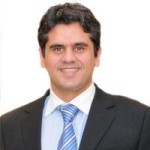Bhanu chopra founded RateGain comes from a business family and always wanted to be an entrepreneur. He went to the US, did his PG and started RateGain in the US to do Systems Integration work in CRM. After sometime, he decided to relocate to India because there is a large technical talent pool and there is a large ecosystem of outsourcing companies but decided to build a price comparison engine for travel instead of offering software development as services.
The travel is extremely commoditized and consumer decisions are purely based on price, there were bunch of studies that proved that more than 70% of the customers based decisions on price in their buying curve. They were sort of the first ones to anticipate such a need because it was a niche area as there was no one that had built something like this and Bhanu was very excited with the huge growth potential. He built the price comparison engine and launched it in the market. There was extreme passion to get things off the ground, . Like other successful startup founders, he was also iterating every hour to evolve the product and his organization from a startup stage to a matured stage. He began analysing the facts and he realized that he was in-fact iterating the concept itself. From the initial iterations, he realized that it will be hard for him to be on the consumer internet because it will be way too expensive to be located out of India and market to the consumers in the US. Bhanu also did not come from a sales background as he was only a programmer. His role at best had been consulting roles when it came to customer interactions. He decided that something needed to be done to make it work.
He decided to pivot from a B2C model to a B2B model because he realized that he had built the engine for the US consumers and it was expensive to be located in India and market to consumers in the US. He began targeting travel related companies. He reached out to a few travel companies via email marketing and cold calling. Since this was a new concept and solved a big problem for the clients, he was given meetings with almost all the initial set of people he reached out to and was pleasantly surprised that the product was accepted immediately. However, he had some basic issues like pricing , implementation etc, Because of his non-commercial and non-sales background, he did not know how to price. He was in his 20s and the only model he knew in pricing was the Time and Material model which the consulting industry was known for and priced his product on the same lines. He realized that this surprised his customers. The deliverables were data and his clients did not understand the concept of no. of hours and no. of people and he could not proceed beyond the prospects showing interest. He now changed his pricing model as a figment of the data which his clients loved. He began getting the POCs for his products in leading travel companies.
Bhanu says that in the uncertain era of the start-ups, there will be a lot of decisions taken based on certain assumptions but the validation of these assumptions will be known with a few conversations. Anyone can figure out what works and what needs to change after that. In terms of product iterations, he realized that the need to build the product on robust technology because the data requirements form customers side was very large and his technology needs to match up to that. He also understood that they need an analytics platform on top of their data to dice and splice the data. He went after the travel and the hospitality industries.. So in terms of Suppliers (Airlines, Hotels, Car rentals) and Intermediaries (online travel agents,) they wanted the best price. Bhanu needed more collaboration with his clients to be able to give them the type of data they wanted. He began talking to them and seeking their help and a few nodded. He began building the product in collaboration with the first few anchored customers. His first two clients actually understood the state Bhanu was in and supported them in building the right products by contributing. The clients helped on iterating on the analytics platform that they built where would start with a view of how they could sliced and diced data and would give their feedback to Bhanu on what they felt about the analytics and how they would need the refined data based on their consumption.4
Bhanu spent a lot of time in reaching out to the prospective customers through email campaigns and industry trade shows. Bhanu closed contracts with his first few customers remotely on email, phone and webex types demos and on the phone by collaboratively making his product work for them. RateGain provides their clients with the data on the competitive landscape on what the clients were charging Vs the Competitors that helps his client organizations take the necessary pricing decisions to remain competitive in the market.
Bhanu’s Advice to early stage startups. Have a lot of Focus and Persistence. There is a finite chances of founders succeeding as long as they continue to remain focussed and learn to navigate the initial bumps.
RateGain(http://www.rategain.com/), now has multiple locations in the US. They have raised an initial round of a few hundreds of crores funding from TA associates. They have around 500 employees and at least ten thousand customers using the product. Economic Times has rated them as one of the top 10 coolest startups in India and Inc USA has recognized them to be one of the top most innovative companies in india and they are in the Delloitte Fast 50 and the fast 500 Asia list multiple times, RateGain also won the most emerging enterprise of the year by CNBC Crisil.






